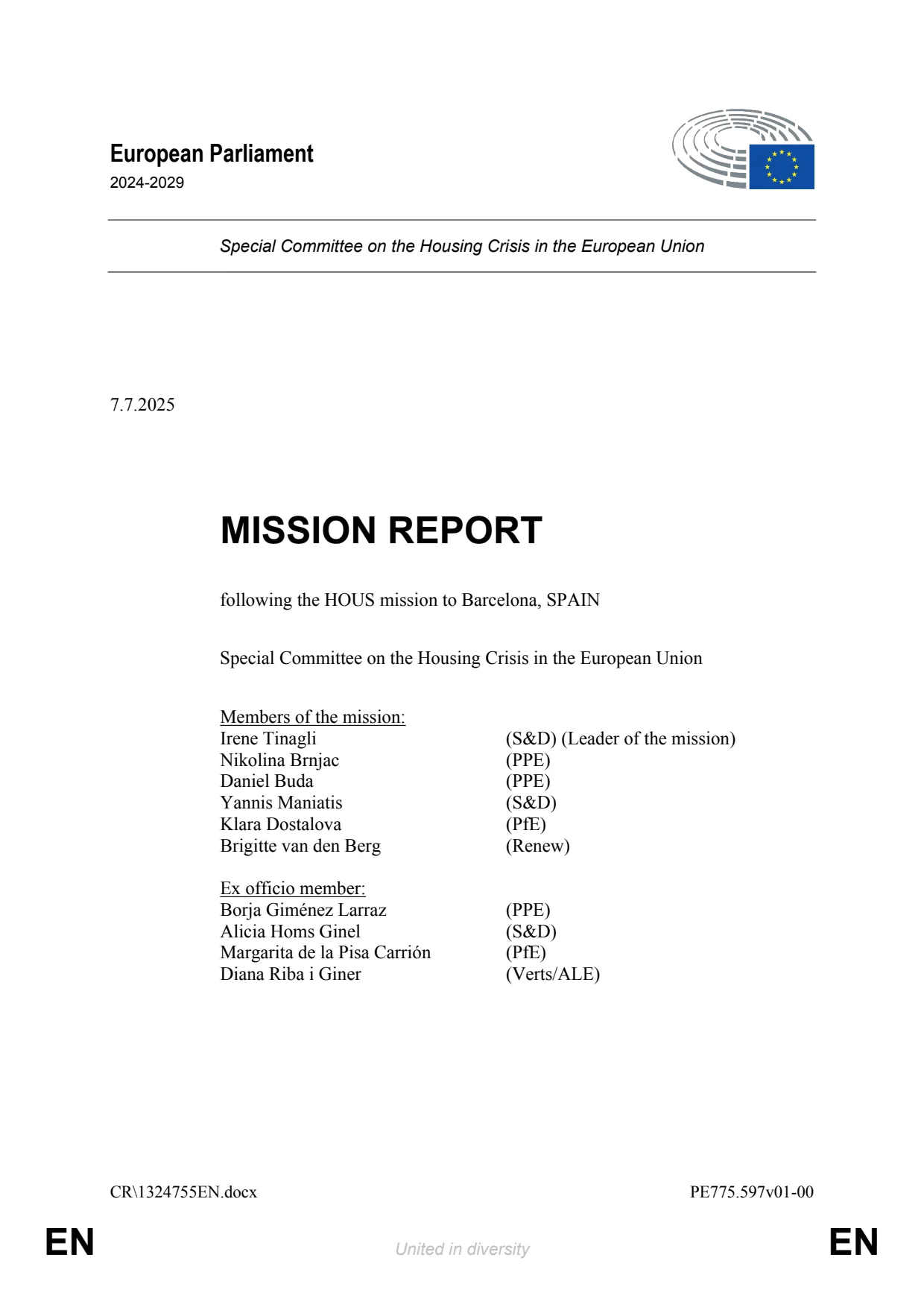AI-Generated Summary
Context of the Mission
The report discusses the mission of the Special Committee on the Housing Crisis in the European Union, which visited Barcelona, Spain, to gather insights into the current housing challenges faced by various stakeholders. This mission involved 12 members of the HOUS Committee, including the committee chair and representatives from different political groups.
Delegation Insights
During their visit, members met with key figures such as the Spanish Minister for Housing, the Catalan Minister for Territory, and the Mayor of Barcelona. They explored legislative changes, including Spain's Law 12/2023, which aims to ensure the right to decent and adequate housing, particularly targeting young and vulnerable populations. This law introduces rent regulation in high-pressure areas and creates a national rent reference index to enhance market transparency.
Local Government Initiatives
Barcelona's housing strategy emphasizes the Right to Housing Plan, which prioritizes the expansion of affordable housing and aims to reduce social vulnerability. The city is also working on a new Housing Plan for 2026-2033 to address emerging challenges. The existing Pla Viure focuses on sustainability and social well-being.
Site Visits and Stakeholder Engagement
Members visited Cáritas Diocesana de Barcelona, which provides various housing solutions to prevent homelessness. They also explored the Llar Betània project, aimed at helping women reintegrate into society post-incarceration. Discussions with Cáritas highlighted the need for emergency social housing and a structural housing policy.
Issues in Badalona
In Badalona, the Mayor and his administration are tackling illegal property occupations and improving public spaces. They reported a severe housing shortage, with only one-third of the required homes built, causing prices to rise significantly. Legal instability and frequent policy changes have further complicated the housing market.
Perspectives from Social Organizations
Meetings with social organizations revealed a consensus on the need for systemic reforms. Stakeholders emphasized that housing should be viewed as a social right rather than a market commodity. They proposed measures like permanent public housing stock and regulation of platforms like Airbnb to safeguard long-term residents.
Economic Actors' Views
Economic representatives discussed the structural imbalances in Spain’s housing market, noting that fewer homes are built than new households formed. They called for increased public-private cooperation, suggesting tax incentives and streamlined regulations to encourage housing development.
Academic Insights
University experts presented proposals framing housing as a fundamental human right. They argued that mere increases in housing supply won't suffice to lower prices and emphasized the need for effective regulation and stable funding to support housing as a public service.
Conclusion of the Mission
The mission underscored the complexities of the housing crisis in Europe, revealing diverse challenges stemming from tourism, speculation, and demographic shifts. While local initiatives in Barcelona show leadership in addressing housing rights, significant obstacles remain, including the need for tailored solutions that accommodate unique local contexts.
